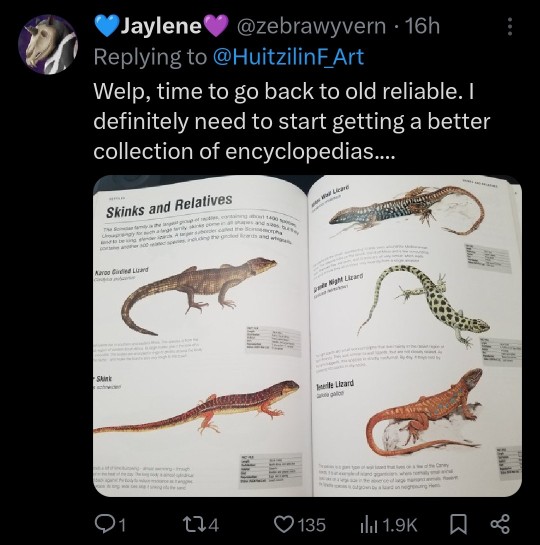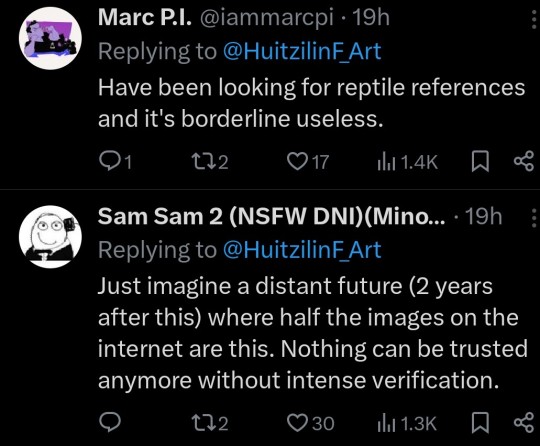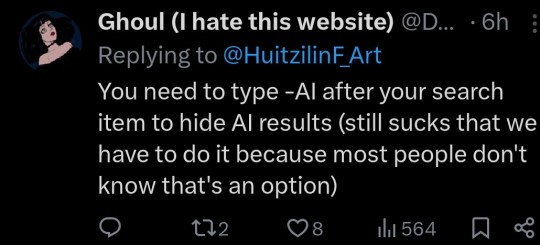Text
question to clear your mind of all conscious thought

13K notes
·
View notes
Text
Here's THE masterpost of free and full adaptations, by which I mean that it's a post made by the master.
Anthony and Cleopatra: here's the BBC version, here's a 2017 version.
As you like it: you'll find here an outdoor stage adaptation and here the BBC version. Here's Kenneth Brannagh's 2006 one.
Coriolanus: Here's a college play, here's the 1984 telefilm, here's the 2014 one with tom hiddleston. Here's the Ralph Fiennes 2011 one.
Cymbelline: Here's the 2014 one.
Hamlet: the 1948 Laurence Olivier one is here. The 1964 russian version is here and the 1964 american version is here. The 1964 Broadway production is here, the 1969 Williamson-Parfitt-Hopkins one is there, and the 1980 version is here. Here are part 1 and 2 of the 1990 BBC adaptation, the Kenneth Branagh 1996 Hamlet is here, the 2000 Ethan Hawke one is here. 2009 Tennant's here. And have the 2018 Almeida version here. On a sidenote, here's A Midwinter's Tale, about a man trying to make Hamlet.
Henry IV: part 1 and part 2 of the BBC 1989 version. And here's part 1 of a corwall school version.
Henry V: Laurence Olivier (who would have guessed) 1944 version. The 1989 Branagh version here. The BBC version is here.
Julius Caesar: here's the 1979 BBC adaptation, here the 1970 John Gielgud one. A theater Live from the late 2010's here.
King Lear: Laurence Olivier once again plays in here. And Gregory Kozintsev, who was I think in charge of the russian hamlet, has a king lear here. The 1975 BBC version is here. The Royal Shakespeare Compagny's 2008 version is here. The 1974 version with James Earl Jones is here. The 1953 Orson Wells one is here.
Macbeth: Here's the 1948 one, there the 1955 Joe McBeth. Here's the 1961 one with Sean Connery, and the 1966 BBC version is here. The 1969 radio one with Ian McKellen and Judi Dench is here, here's the 1971 by Roman Polanski, with spanish subtitles. The 1988 BBC one with portugese subtitles, and here the 2001 one). Here's Scotland, PA, the 2001 modern retelling. The Royal Shakespeare Compagny's 2008 version is here. Rave Macbeth for anyone interested is here. And 2017 brings you this.
Measure for Measure: BBC version here. Hugo Weaving here.
The Merchant of Venice: here's a stage version, here's the 1980 movie, here the 1973 Lawrence Olivier movie, here's the 2004 movie with Al Pacino. The 2001 movie is here.
The Merry Wives of Windsor: the Royal Shakespeare Compagny gives you this movie.
A Midsummer Night's Dream: have this sponsored by the City of Columbia, and here the BBC version. Have the 1986 Duncan-Jennings version here. 2019 Live Theater version? Have it here!
Much Ado About Nothing: Here is the kenneth branagh version and here the Tennant and Tate 2011 version. Here's the 1984 version.
Othello: A Massachussets Performance here, the 2001 movie her is the Orson Wells movie with portuguese subtitles theree, and a fifteen minutes long lego adaptation here. THen if you want more good ole reliable you've got the BBC version here and there.
Richard II: here is the BBC version. If you want a more meta approach, here's the commentary for the Tennant version. 1997 one here.
Richard III: here's the 1955 one with Laurence Olivier. The 1995 one with Ian McKellen is no longer available at the previous link but I found it HERE.
Romeo and Juliet: here's the 1988 BBC version. Here's a stage production. 1954 brings you this. The french musical with english subtitles is here!
The Taming of the Shrew: the 1980 BBC version here and the 1988 one is here, sorry for the prior confusion. The 1929 version here, some Ontario stuff here, and here is the 1967 one with Richard Burton and Elizabeth Taylor. This one I'm not quite sure what it is or when it's from, it's a modern retelling.
The Tempest: the 1979 one is here, the 2010 is here. Here is the 1988 one. Theater Live did a show of it in the late 2010's too.
Timon of Athens: here is the 1981 movie with Jonathan Pryce,
Troilus and Cressida can be found here
Titus Andronicus: the 1999 movie with Anthony Hopkins here
Twelfth night: here for the BBC, here for the 1970 version with Alec Guinness, Joan Plowright and Ralph Richardson.
Two Gentlemen of Verona: have the 2018 one here.
The Winter's Tale: the BBC version is here
Please do contribute if you find more. This is far from exhaustive.
(also look up the original post from time to time for more plays)
55K notes
·
View notes
Text
I was debating pre- and post- smartphone existentialism with an older gentleman today and he stopped part way through and said “Why are you a security guard? Why aren’t you teaching this at some college somewhere?” And I didn’t know what to say so I went with “Well I used to make art but nobody pays an artist”
68K notes
·
View notes
Text
the parasocial relationship between you and the guy whose article you cite the most in your paper
19K notes
·
View notes
Text
theres lots of first contact stories, and usually they mostly gloss over the establishment of a pidgin, like theyll mention it but its not the main focus, and thats fine, not every first contact story should be about linguistics, but it fills me with a longing for more stories about trying to bridge a communication gap like that, especially ones that question the ability for advanced abstract translation at all
7K notes
·
View notes
Text
girl what the fuck is even the theme of a midsummer night’s dream. is there even a lesson to be learned. is it just vibes or what
136K notes
·
View notes
Photo

Sims 4 page on Steam. Not to be controversial but I think the CEO of EA should be beheaded for this
152K notes
·
View notes
Text
Eerie ecology, other-than-human presences and agencies; landscape forces:
[G]othic fiction is the site where the edges and limits of human experience, cognition, and subjectivity are transgressed with all manner of invasions form the “outside” that threaten the homely and secure world of the rational and the normal. […] Fisher notes that the outside, as a realm of the weird and the eerie via the gothic, does not have to be a realm of horror, monsters, or abjection:
What the weird and the eerie have in common is a preoccupation with the strange. The strange – not the horrific. The allure that the weird and the eerie possess […] has, rather, to do with a fascination for the outside, for that which lies beyond standard perception, cognition and experience. This fascination usually involves a certain apprehension, perhaps even dread – but it would be wrong to say that the weird and the eerie are necessarily terrifying. I am not here claiming that the outside is always beneficent. There are more than enough terrors to be found there; but such terrors are not all there is to the outside. […]
Where society is increasingly on the move, movement turns a place into a passage of space, and therefore non-place. Auge, in this respect, defines the majority of non-places as being transitional spaces, of areas of transit and temporary waiting; airports, motorways and their services stations, car parks, hotel or office lobbies, and shopping malls. […] They invoke in the individual towards consumerism and social control […], to psychologically disconnect, to drift in an aesthetically impoverished landscape and the seeming absence of presence. […]
——-
[T]he eerie concerns itself with the presence or absence of something, and such places (or non-places) are often where there is an absence of humanity, or where there is something or some agency at work that is just beyond our realm of understanding;
“The eerie concerns the most fundamental metaphysical questions one could pose, questions to do with existence and non- existence.” As such, the eerie “is constituted by a failure of absence or by a failure of presence. The sensation of the eerie occurs either when there is something present where there should be nothing, or is there nothing present when there should be something.”
This becomes evident with the use “eerie” as descriptive terms, such as there being an “eerie silence,” or an “eerie cry”; at the heart of the eerie, it talks of an absence of something, or the presence of something, but something that is unknown and outside of our normal frames of knowledge and reference.
——-
On a material level, the eerie is often not located in the humanistic confines and locales of the family and home.
Often, it is located in marginal spaces, in landscapes, sites, and structures where there is either a distinct lack of human presence, or there was once a human activity which has since disappeared.
Various ruins, such as the ancient sites of Stonehenge, and Easter Island, to more modern locations such as abandoned buildings and houses underline several aspects to the eerie, as the failure of presence that is the absence of humanity almost certainly leads to various forms of speculation as to the source of said absence. Fisher argues that while the certain sites often contain traces of the weird, for a place to be truly eerie, there need to be an alterity in the way that said absence or presence can’t be described or explained away. There is a circumvention that prevents understanding.
More importantly, Fisher asserts that the eerie turns on the issues of agency in the way that:
It is about the forces that govern our lives and the world […] In the case of the failure of absence, the question concerns the existence of agency as such. Is there a deliberative agent here at all? Are we being watched by an entity that has not yet revealed itself? In the case of the failure of presence, the question concerns the particular nature of the agent at work. We know that Stonehenge has been erected, so the questions of whether there was an agent behind its construction or not does not arise; what we have to reckon with are the traces of a departed agent whose purposes are unknown.
——-
Text by: Bob Cluness. “I am an other and I always was…” On the Weird and Eerie in Contemporary and Digital Cultures. University of Iceland MA Thesis. 2019.
211 notes
·
View notes
Text
kind of obsessed with the conlang invented by 12th century composer and mystic hildegard von bingen. she called it lingua ignota and just sort of never explained why it exists or what it’s for? like. girl. why did you do this
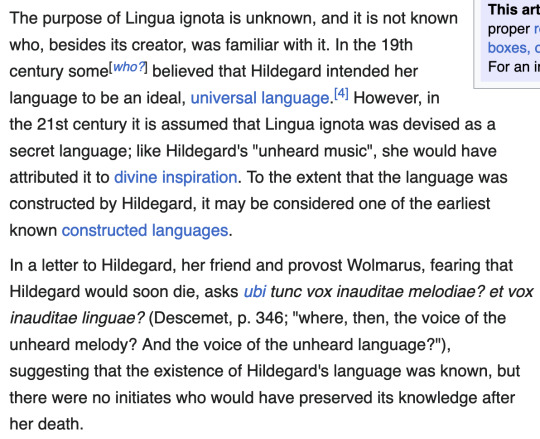


in case you’re wondering what was up with her, like, in general, she was an abbess who was (1) politically influential, (2) chronically ill, and (3) plagued by visions.
but like seriously girl WHAT was the conlang for. TELL ME
5K notes
·
View notes
Text
do you want me. have you wanted me. will you want me. when will you want me
18K notes
·
View notes
Text
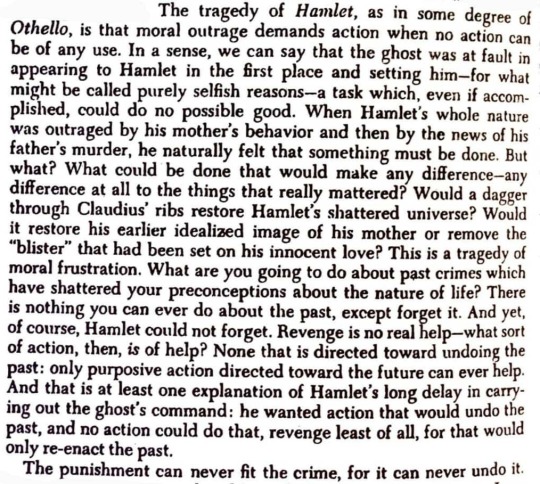
Absolutely insane lines to just drop in the middle of an academic text btw. Feeling so normal about this.
[ A Critical History of English Literature, Vol. 1, Prof. David Daiches, first published in 1960 ]
28K notes
·
View notes
Text
"YA books are brain rotting at any age" okay I know booktok is annoying but please get offline
32K notes
·
View notes
Text
Friend: Says something.
What I want to say: I’m really interested in what you are saying. As my friend, I support you. I want you to know I am still here, still listening, and still enjoying what we are sharing together. However as this is a topic I myself have no experience with, or little to say or offer, I’m unable to produce much in the way of input from my side. However trust that I still adore listening to you!
What comes out: Yee.
161K notes
·
View notes

